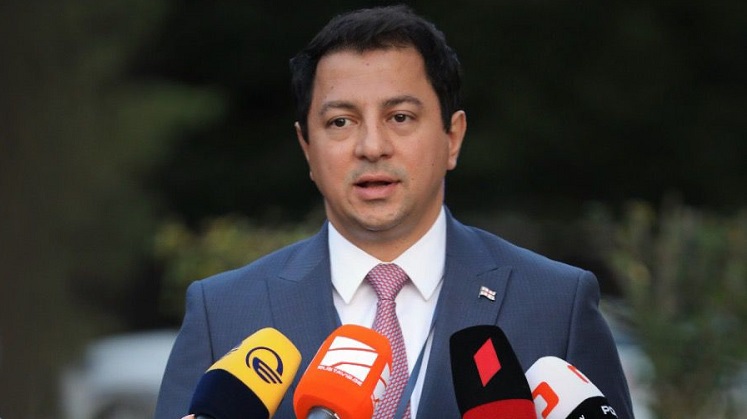Vice Parliament Speaker highlights EU’s stance on necessity of transparency in foreign funding

“The essence [of the transparency bill] is for citizens to know who is communicating with them, who are the organisations involved and their financiers. This allows citizens to make informed decisions”, he pointed out. Photo via Parliament of Georgia
Georgian Vice Parliament Speaker Archil Talakvadze on Thursday highlighted the European Union’s stance on the necessity of transparency of foreign funding and influence to prevent public misinformation and ensure transparency across European countries.
The comments followed a decision of the ruling party to resubmit a bill calling for the registration of non-commercial legal entities and media outlets in the country as “pursuing the interests of a foreign power” if they derive more than 20 percent of their funding from abroad.
In his comments to the media, Talakvadze noted that the European Commission had already submitted a directive to the European Parliament, addressing the need for transparency of foreign financing.
Our arguments are straightforward: what the EU needs, Georgia needs [it as well]”, he emphasised and added if European states “consider protecting their societies from foreign influence”, then “it is necessary" for Georgia to do the same.
“The essence [of the transparency bill] is for citizens to know who is communicating with them, who are the organisations involved and their financiers. This allows citizens to make informed decisions”, he pointed out.
Talakvadze said the Georgian officials and business sector set an example of publicly submitting their income and expenditures and emphasised the need for non-governmental organisations to follow this standard of transparency as well.
The Georgian Parliament last year formally retracted the draft law following the decision by the ruling Georgian Dream party to withdraw the bill, after Georgian-based non-governmental organisations, the United States Department of State, European Union officials and the United Nations Office in Georgia all spoke out in criticism of the bill.
 Tweet
Tweet  Share
Share